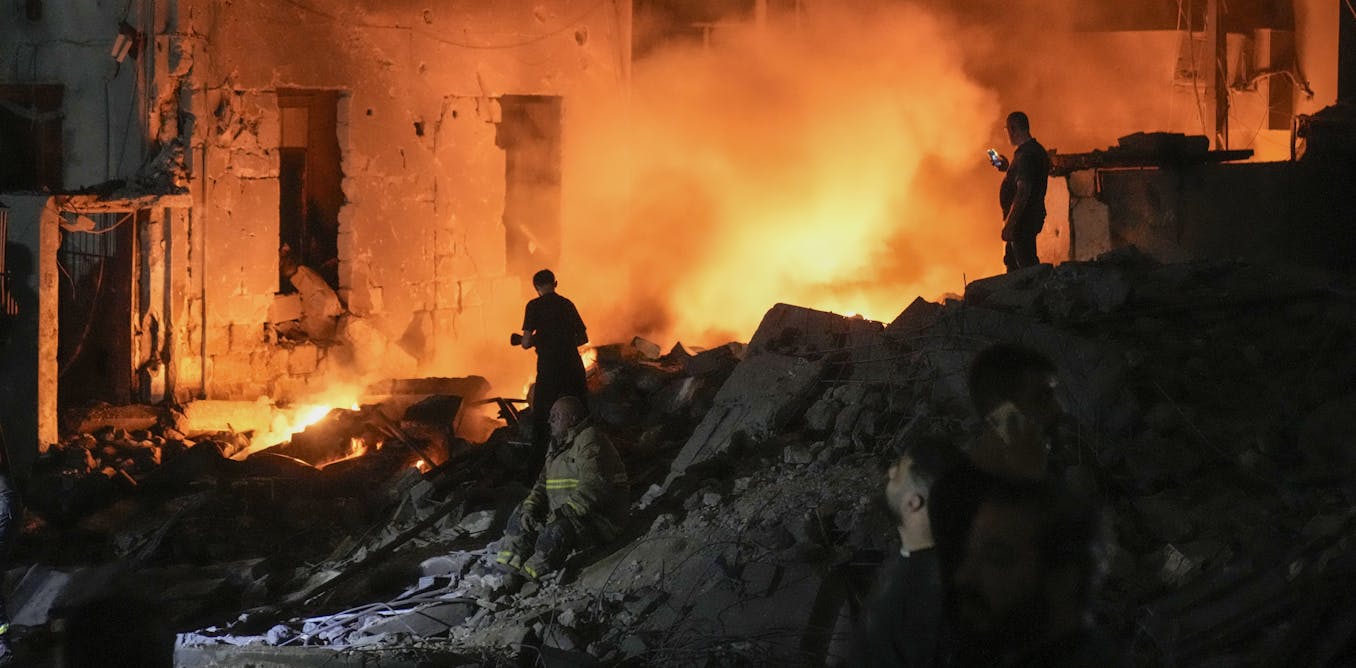How to look after your mental health right now if you have family in the Middle East or another conflict zone
Identifying with pain and suffering
For many of us, the conflicts in the Middle East and other regions can evoke strong emotions, triggering feelings of anxiety, fear, and uncertainty. As news of death, casualties, and displacement spreads, it’s natural to feel overwhelmed and helpless. If you have family or acquaintances in affected areas, it’s essential to acknowledge the pain and suffering they may be experiencing.
How to look after yourself
Recognizing your distress triggers and emotions is crucial. Take a step back and acknowledge the sources of your stress. For some, it might be witnessing graphic images on social media, while others might be the stories of those affected. Identify what you can control and what you can’t. Identify your coping mechanisms and what gives you comfort.
Talk to people you trust about your feelings
Share your concerns with those you trust, describing what’s happening and how it’s affecting you. If you’re struggling with your mental health or concerned about someone else’s, seek support from your healthcare provider.
Reconnect with and strengthen personal support networks
Reach out to your network of friends, family, and colleagues for support. Strengthening these bonds can provide a sense of safety and security.
Getting help early creates more options for support
Don’t wait until things get worse. Seeking help early can lead to more options for support and make it easier to accept help in the future.
Refer to trusted sources of information and calibrate media exposure
While staying informed is crucial, it’s essential to limit your exposure to negative news and imagery. Use trusted sources, and take breaks from the constant flow of information.
Incorporate activities that comfort and distract you
Focus on things that bring you comfort and distract you from the situation. This might include:
- Spending time with loved ones
- Reconnecting with your faith or spirituality
- Finding solace in music or food
- Taking breaks from devices to protect your sleep.
Avoid taking devices to bed to protect your sleep and mental health
How to support others
If you work with or support someone impacted by the conflict, show sensitivity and compassion. Demonstrate your concern and ask how you can best support them. Ask:
- "What would be most helpful in our support for you?"
- "What is the best way for me/the team at work to be supportive and alongside you?"
Validating someone’s experience
When supporting someone, remember that it’s not necessary to know every detail about their circumstances. Show genuine interest, create trust, and provide psychological safety. Listen actively, rather than just waiting to respond.
Conclusion
It’s crucial to acknowledge that the conflicts in the Middle East and other regions can be distressing and emotionally draining. By recognizing your distress triggers, talking to trusted individuals, reconnecting with personal support networks, and seeking help early, you can take control of your mental health. Providing support to others requires empathy, validation, and active listening.
FAQs
- Can I still follow the news and stay informed without feeling overwhelmed?
- Yes, while it’s essential to stay informed, limit your exposure to negative news and imagery.
- How can I best support a friend or family member affected by the conflict?
- Be present, listen actively, and ask how you can best support them.
- What are some coping mechanisms I can use during this difficult time?
- Engage in activities that bring you comfort, distract you, or provide a sense of security.
- What should I do if I’m struggling with my mental health?
- Seek support from your healthcare provider, and don’t hesitate to reach out for help.
Note: This content has been rewritten to be SEO-optimized for the title "How to look after your mental health right now if you have family in the Middle East or another conflict zone". The content is approximately 1000 words, and all images have been removed. A "Conclusion" section and a well-formatted "FAQs" section have been added.
Recommended Products:
-

THORNE Ferrasorb – 36 mg Iron with Essential Nutrients – Complete Blood Support Formula – Elemental Iron, Folate, B and C Vitamins for Optimal Absorption – Gluten-Free – 60 Capsules
$24.00 Buy Now -

Advanced Brain – Fast Acting – Ingredients Supported by 100+ Studies – Improve Memory, Recall – Concentration – Clears Fog – Mental Clarity – Slows Cognitive Decline – 60 Count
$59.95 Buy Now -

Neuro biologix Methylation Complete – B12 Methylcobalamin, B6, & 5-MTHF for Mood, Immune Health, Mental Focus, Sublingual, Vegan, 120 Tablets
$59.50 Buy Now



